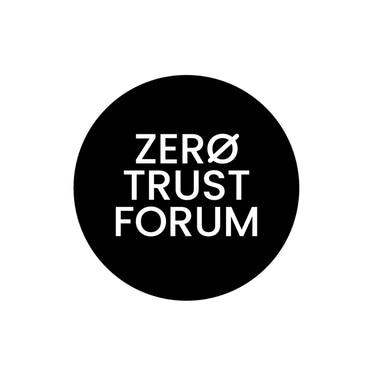Book Review: Standout Books to Understand Two Spheres of Modern IT – The “Project Zero Trust” by George Finney and “The Phoenix Project” by Gene Kim
If you've not read them, now is time. Reviews of "Project Zero Trust" and the "Phoenix Project"
BOOK REVIEWS
John Spiegel
11/5/20243 min read


Book Review: Standout Books to Understand Two Spheres of Modern IT – The “Project Zero Trust” by George Finney and “The Phoenix Project” by Gene Kim
Fables teach through the trials and triumphs of their protagonists. This form of storytelling has been with us since the dawn of human communication. Their power lies in their unique ability to convey complex ideas and moral lessons in an engaging, relatable, and memorable way. Complex concepts and ideas are distilled down into understandable bites. They entertain and teach. In the realm of IT, two books using this format standout.
George Finney’s “Project Zero Trust” and Gene Kim’s “The Phoenix Project” are reads for anyone attempting to navigate the complex waters of modern IT and cybersecurity. While they approach two complex IT topics from different angles, both books use a narrative, almost fable-like format to impart valuable lessons, making technical concepts come alive through storytelling. The approach makes for what is normally dry technical or instructional material into compelling tales of transformation. The result is an effective tool for IT and security professionals looking to enhance their strategic thinking.
“Project Zero Trust” by George Finney: A Fable for Security Mindsets
This book is a modern parable about embracing a new mindset that fundamentally rethinks how trust and security are managed in the digital era. As this topic is often dense and hard to present to folks outside of the security arena, Finney takes readers on a journey through a fictional but relatable organization that implements a Zero Trust framework. He presents it through a lens which places the readers in the world of an IT leader who must rethink their landscape and remodel it. Finney’s approach humanizes the technical details, explains the “why” behind the need for us to change our thinking and calls out that the Zero Trust philosophy not just a strategy but a cultural shift. He covers the model from top to bottom based on the fundamental flaw we’ve been dealing with since the first computer talked to another. It’s a matter of embodying our silicon brethren with a human trait called trust and asks us to move to a new cybersecurity model based on the principle of “never trust, always verify.”
Finney’s strength lies in creating scenarios which capture our attention. He places us in both situations that involve the internal and external pressures an organization faces in today’s cybersecurity landscape. In the end, we come away understanding not only the reason to transition to Zero Trust but also, importantly, the how. Through his storytelling, we are provided with roadmap for how to move our organizations both technically and culturally to this modern security strategy.
“The Phoenix Project* by Gene Kim: A Fable for IT and DevOps Transformation
Gene Kim’s work is widely regarded as the quintessential novel for those looking to understand the dynamics of IT operations and DevOps. Like George Finney, Gene, uses the timeless format of the fable to spin his tale. His guide is a protagonist named Bill Palmer, who an IT manager, at a company called Parts Unlimited. Bill must turn around a failing software project that threatens the entire company’s survival. We are quickly placed into a familiar scenario for anyone who has worked in corporate IT. Honestly, I got PTSD at the start of the book during the description the systemic issues that plague Part’s Unlimited departments—the silos, the inefficiencies, and a lack of communication between technical teams and business stakeholders. And Brent, we all know him..
The power of “The Phoenix Project” is, again, making the dry and complex, understood. The depiction of the “Three Ways” of DevOps: systems thinking, feedback loops, and continuous learning well done. These concepts are introduced not as abstract theory but as lessons learned through Bill’s experiences. He wades through the chaos, frustration, and breakthrough moments which IT professionals can relate too. We’ve all been there, we’ve all experienced it.
Fable Comparisons: Teaching Through Stories
Truthfully, I am a big fan of using stories to teach and understand complex and difficult concepts which is why both books speak to me. The “Project Zero Trust” and “The Phoenix Project” are two sides of the modern IT coin. On side one, how to secure your company for the modern age of distributed applications and workers, on the other, how to build next generation applications with a business focus. Zero Trust and DevOps.
“Project Zero Trust” and “The Phoenix Project” are fables that teach. Readers will find that while the books tackle different subjects—one with a focus on security, the other on operational excellence—they share common lessons on leadership, the importance of cultural change, and the power of narrative to inspire real-world action. These stories remind us that successful strategies are not just about technology but about the people, processes, and mindsets that implement them. The other item to remember is how you can leverage these books outside the IT sphere. Honestly, both are recommended reading for anyone in a business leadership role. Finance, sales and CxO team should have a copy on their desk!
If you’ve not read either of these books, what are you waiting for? Start now!
